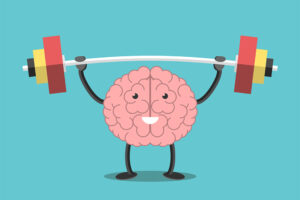The Importance of Losing Weight
Maintaining a healthy body weight is crucial for overall well-being. Obesity is a leading cause of numerous health problems, including heart disease, diabetes, and high blood pressure. There fore, losing weight can help improve your health and reduce the risk of developing these conditions.
Can You Lose Weight Without Going to the Gym?
The short answer is yes. While regular exercise is essential for weight loss, there are other ways to shed those extra pounds. Here are some effective strategies to help you lose weight without going to the gym:
1. Reduce Your Caloric Intake
One of the most effective ways to lose weight is by reducing your caloric intake. Consuming fewer calories than your body needs forces it to burn fat for energy, leading to weight loss. To achieve this, you can:
- Cut back on high-calorie foods such as fast food, sweets, and processed snacks.
- Choose low-calorie alternatives such as fruits, vegetables, and lean protein sources.
- Use smaller plates to help control portion sizes.
2. Increase Your Protein Intake
Protein is essential for building and repairing tissues in the body. It also helps to keep you feeling full, reducing your overall calorie intake. To increase your protein intake, you can:
- Incorporate lean protein sources such as chicken, fish, and tofu into your meals.
- Choose high-protein snacks such as nuts, seeds, and Greek yogurt.
- Consider adding a protein supplement to your diet.
3. Drink More Water
Drinking water can help you lose weight by increasing feelings of fullness and reducing calorie intake. Additionally, staying hydrated helps your body to function properly and can aid in digestion. To drink more water, you can:
- Carry a water bottle with you throughout the day.
- Flavor your water with fresh fruit or herbs.
- Replace sugary beverages such as soda with water.
4. Get Enough Sleep
Sleep is essential for overall health and well-being. It also plays a crucial role in weight management. Lack of sleep can disrupt hormonal balance, leading to increased hunger and calorie intake. To ensure you get enough sleep, you can:
- Aim for seven to nine hours of sleep per night.
- Create a relaxing sleep environment by keeping your bedroom cool and dark.
- Avoid electronics before bedtime.
5. Practice Mindful Eating
Mindful eating is a technique that involves paying attention to your food and your body’s hunger and fullness cues. By practicing mindful eating, you can develop a healthier relationship with food and reduce overeating. To practice mindful eating, you can:
- Eat slowly and savor each bite.
- Pay attention to the flavors, textures, and aromas of your food.
- Stop eating when you feel full.
6. Incorporate Physical Activity into Your Day
While you don’t have to go to the gym to lose weight, incorporating physical activity into your day can help you burn extra calories and improve your overall health. Some ways to incorporate physical activity include:
- Taking a walk during your lunch break.
- Doing household chores such as cleaning or gardening.
- Taking the stairs instead of the elevator.
7. Seek Support
Weight loss can be challenging, and it’s essential to have a support system in place to help you stay motivated and accountable. Consider seeking support from:
- Friends and family members who have similar goals.
- A registered dietitian or nutritionist.
- A mental health professional to address any underlying emotional issues related to eating.
Conclusion
Losing weight without going to the gym is possible. By reducing your caloric intake, increasing your protein intake, drinking more water, and getting enough sleep, you can achieve your weight loss goals. Incorporating these strategies into your daily routine can lead to improved health and well-being.








